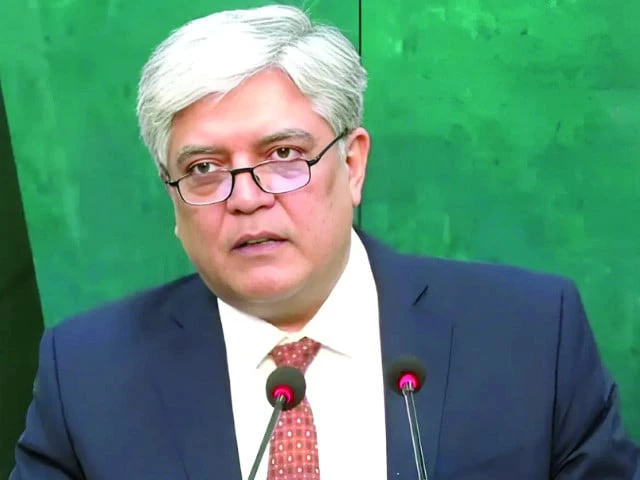Spokesman says both countries are actively communicating but “no formal government currently exists in Kabul”
The current Afghan Taliban regime in Afghanistan is not truly representative of the Afghan people, the State Department said Friday.
FO spokesperson Shafqat Ali briefed the media about the prevailing situation. Pakistan’s embassy in Kabul and Afghanistan’s embassy in Islamabad are both fully functional and routine diplomatic communiqués continue, he said.
Still, the spokesman declared, “no formal government currently exists in Kabul and one group holds power by force”. The current administration in Kabul does not represent the Afghan people, Ali said. “Afghans will one day elect a government led by their true representatives.”
Initial direct contacts were made over the past week after tensions escalated with both sides reporting heavy casualties in clashes along the Pak-Afghan border last weekend. This was done with the support of friendly countries, the FO spokesman said, adding that there are no negotiations or agreements regarding Doha at the moment.
A 48-hour ceasefire was imposed last Wednesday at
Ali stressed that Pakistan’s targeted precision strikes were defensive and not aimed at the Afghan people. Pakistan continues to prefer dialogue as the way forward, he added.
The Afghan Taliban regime cannot absolve itself of its obligation to ensure peace and stability in the region and beyond by deflecting responsibility from failure to control terrorism against Pakistan, the FO spokesman claimed.
“Pakistan has hosted four million Afghan citizens and remains committed to legal and humanitarian measures regarding their presence,” he said.
He condemned the Afghan Taliban’s desecration of corpses. “This is unacceptable,” Ali said, adding that the matter has been raised with the administration in Kabul.
Islamabad reiterated its concern over provocations by the Afghan Taliban and the terrorist groups Fitna al-Khawarij and Fitna al-Hindustan.
Read: Suicide attack on security forces camp in North Waziristan’s Mir Ali averted
The latter two are terms introduced by the state after the war with India in May 2025, with the first referring to terrorists associated with the banned Tehreek-e-Taliban Pakistan (TTP) and the second typically reserved for banned separatist outfits.
The spokesperson rejected statements by Afghanistan’s Interim Foreign Minister Amir Khan Muttaqi made in India and criticized the joint statement issued during the Interim Foreign Minister’s visit to India in which he described Indian Illegally Occupied Jammu and Kashmir (IIOJK) as part of India. “This is tantamount to denying the rights of the people of Occupied Kashmir,” Ali said.
The spokesman highlighted India’s support to terrorist groups in Afghanistan, including the TTP and the banned Balochistan Liberation Army (BLA), through training facilities, kindergartens and other activities. “India’s negative role is no secret and statements by its foreign ministry are public knowledge.”
Ali reiterated that Islamabad strongly rejects Afghanistan’s acting foreign minister’s claim that terrorism is Islamabad’s “internal problem”.
He said references to Jammu and Kashmir as part of India violate relevant United Nations Security Council (UNSC) resolutions and override the territory’s legal status.
Read also: Pakistan accepts the Afghan Taliban regime’s request for a 48-hour ceasefire
The joint declaration, he added, was extremely insensitive to the sacrifices and feelings of the people of IIOJK in their just struggle for the right to self-determination.
Pakistan is maintaining contacts with the ruling group in Kabul as they push for action against terrorism, according to the FO spokesman.
Pakistan-Afghanistan ceasefire
A confrontation took place on the night of October 11-12 when Afghan Taliban forces, backed by “Indian-sponsored elements of Fitna al-Khawarij”, launched an unprovoked attack on Pakistan along the border, according to the military’s media wing.
“The cowardly act, which included fire and a few physical raids, was aimed at destabilizing the border areas to facilitate terrorism and further the nefarious designs of the FAK,” Inter-Services Public Relations said in a statement.
The security forces, exercising the right of self-defence, decisively repulsed the attacks along the border and inflicted heavy casualties on Taliban forces and associated Khawarij terrorists, the ISPR said.
On October 15, the State Department announced that Pakistan and the Afghan Taliban regime have agreed to a 48-hour ceasefire following Pakistan’s ‘precision strikes’ on Taliban and terrorist hideouts in Kandahar and Kabul.
According to the ministry, the decision was taken at the request of the Taliban and with the mutual consent of both sides. During the ceasefire, both parties will conduct a constructive dialogue to make sincere efforts to find a positive solution to a complex but solvable problem, the ministry had said.
“This temporary pause aims to create space for meaningful discussions and promote stability along the border,” the ministry said in a statement.



